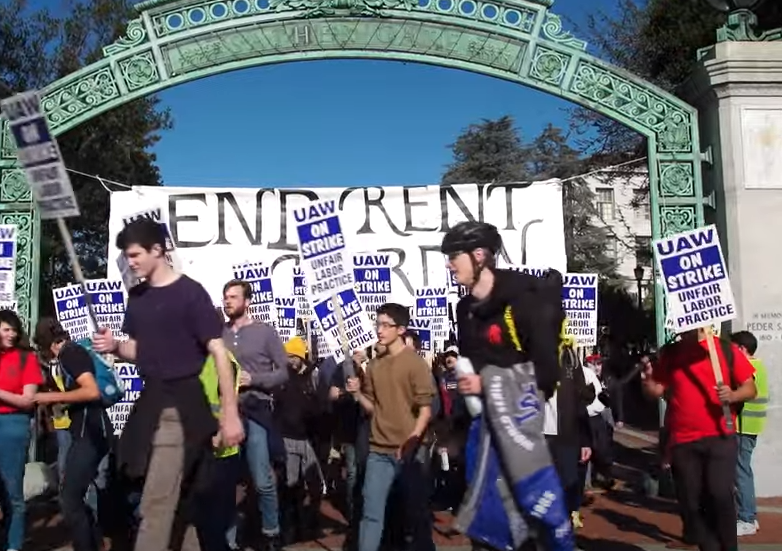Graduate student strike ‘brings stress’ to students at University of California

The University of California’s ten campuses are frozen, in a way, as graduate student workers continue their strike into the fifth week.
Even the Associated Press (AP) reported that students are stressed because of the lack of assistance from striking teaching assistants. Despite the stress that their students are feeling, the graduate students continue to demand pay increases to afford high rent prices in California.
Teaching assistants often grade assignments, help undergraduate students in so-called lab hours, hold classroom instructions, and answer questions throughout the week. Without active teaching assistants, undergraduate students are in a stressful and uncertain situation.
It is also unfair to undergraduate students and professors because the strike’s length is now infringing on final examinations week, called “finals week” by many students. It means that undergraduate students are unprepared or underprepared since they cannot receive help or instruction from teaching assistants before taking the final exams.
One sophomore student at Berkeley’s campus told the AP that she was depending on the final review sessions held by teaching assistants ahead of her economics final exam. But, without teaching assistants, she will not receive the help that she needs. Compounding the issue is that she has to complete the class (including passing the final) before declaring her major in economics the next academic year. The strike could delay this student’s plans to declare a major, or she would have to switch majors.
About 12,000 of the 48,000 workers reached a tentative agreement with the university, but continued to strike in solidarity with the other striking workers. The university agreed to a 29% pay raise for postdoctoral employees and academic researchers, more job security, family leave time, and child care subsidies.
On average, graduate students earn around $24,000 a year as teaching assistants or other part-time work on campus.
These graduate student workers demanded a minimum salary of $43,000 for part-time work, which is unheard of in higher education and in the real world. The university said it already offered to raise salaries from $47,000 to $75,000 by 2024, which would cover tuition and fees. Neither side admits that by increasing workers’ wages, it would mean an increase in tuition and fees for the undergraduate students.
Officially, the university and union, United Auto Workers, entered mediation on Friday without an official timeline. But it appears that the strike will continue into the next year, which will cause further stress on undergraduate students.




